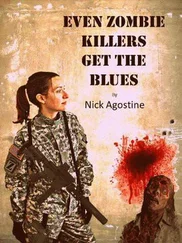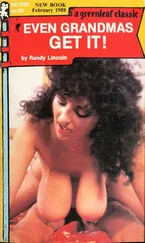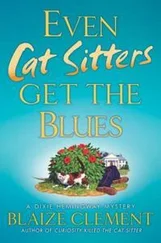Sissy wished quite hard for a message from the Countess that day, because there was less than a dollar in her pockets. Wishing made it so. As the President beamed upon her, the postmaster returned to the counter with a slinky mauve envelope, addressed in puce-colored ink and smelling (even as it snuggled against the postmaster's hand) of the boudoir. “Thank you,” Sissy said, and she carried the missive out onto the sidewalk.
Hitchhiking into LaConner, Washington, had been like hitchhiking down a mossy old well. Dark, damp and very green. There were puddles in the street and the smell of mushrooms everywhere. The sky was a crock of curdled cloud. Mallards swam within quacking distance of the village post office and, as if in welcome, ten thousand hitchhiking cattails pointed their fat thumbs in the air.
She could hear foundations decaying as she stood there, and every horizon she tried to focus upon was mysteriously blurred, as if licked by the tip of the tongue of the Totem. Snails advanced upon the woodpiles. Fir trees stood their ground.
Directly across the slough from the village was the Swinomish reservation. Indeed, several Indians walked past Sissy at the post office, distracting her, for the moment, from the Countess's letter.
At last, however, she ripped it open and was surprised to read just this:
Sissy, Precious Being,
How are you, my extraordinary one? I worry so. Next time you are near Manhattan, do ring me up. There is a man to whom I simply must introduce you. Thrill!!
The Countess
Refolding the sheet of expensive notepaper, Sissy warmed it for a while between her palms, as if, like the dirty old man who sat on a Girl Scout cookie hoping to hatch a Brownie, it might metamorphose into a work order. When she read it again, alas, it was the same pointless message.
“You'd think the Countess would know me better than that,” she mused. “I haven't had a paycheck in half a year and all the Countess can come up with is an introduction to a man. Criminey!”
Just then, on the slough, some Indians tore by in a long canoe (an antique shovel-nose war canoe), chanting furiously in the Skagit language. They were Swinomish bucks, mostly high school ballplayers or young unemployed veterans, practicing for the annual Fourth of July longboat race against the Lummi, Muckleshoot and other Puget Sound tribes. Sissy flung the scented letter into a waste can.
On television once, she had seen a cheapo Western called Reprisal . Guy Madison played a half-breed who passed. In the end, however, he soured on the System and went back to the wild old ways. “I deny that part of me that is white!” he cried
Sometimes Sissy had considered following Guy Madison's example. Ah, to wahoo in the fir-shadowed streets of LaConner and deny that part of her that was civilized and pale!
But that would be denying fifteen-sixteenths of her.
What would it be like, living life as a one-sixteenth?
(a) Like that part of the moth the candle burns last.
(b) Like a “slow dance on the killing ground.”
(c) Maybe not so bad at that: in the land of rotting grapes a raisin could be queen.
(d) Like a pair of thumbs to which there is no brain, no heart, no cunt attached.
18.
THAT HER PLEASURE IN INDIANHOOD and her passion for car travel might be incongruous if not mutually exclusive never occurred to Sissy (as it was to occur to Julian and Dr. Goldman). After all, the first car that ever stopped for her had been named in honor of the great chief of the Ottawa: Pontiac.
Perhaps Sissy was one of those who believed that nature and industry could sleep between the same flowered sheets. Perhaps she entertained visions of a future wilderness where bison and Buicks would mingle in harmony and mutual respect, a neoprimitive prairie where both pinto and Pinto would run free.
Perhaps. The visions of a woman in motion are difficult to gauge.
Visionary beliefs were neither expressed nor implied as Sissy, provisioned with Three Musketeers bars, thrilled LaConner's municipal cattails by the manner in which she hitched out of town. As previously suggested, Sissy made it a general practice never to plan an itinerary nor fix a destination — but could she help it if the only road out of LaConner, Washington, ran directly to New York City?
Just as Chief Pontiac's beseeching question, “Why do you suffer the white man to dwell among you?” arrowed straight to the soul of his people, so the only road out of LaConner shot straight to Park Avenue and the Countess.
“I honestly don't know how I got here so fast,” Sissy told the Countess. “When I walked into the LaConner Food Center to buy candy, some Indians at the beer cooler snickered at my hands. I freaked out and the next thing I knew I was approaching the Holland Tunnel. I woke up in the front seat of a convertible. The top was down and my first impression was that we'd been scalped.”
19.
THE COUNTESS HAD A SMILE like the first scratch on a new car. It was immanently regrettable. It was a spoiler. It was a stinging little reminder of the inevitability of deterioration.
As if further vandalizing a marred surface, an ivory cigarette holder periodically pried apart the Countess's prickly jowls. Ashes from French cigarettes sifted onto the white linen suit that he wore daily without respect to season; ashes sifted upon the month-old bloom in his lapel. His monocle was fly-specked, his ascot was steaksauced, his dentures thought that they were castanets and the world was a fandango.
The Countess didn't give a damn. He was rich, and not a penny less. You would be rich, too, if you had invented and manufactured the world's most popular feminine hygiene products.
The Countess had built a fortune on those odors peculiar to the female anatomy. He was the General Motors of body cosmetics, the U.S. Steel of intimate fresheners. As any genius might, he obsessively directed every phase of his company's activities, from research to marketing, including advertising campaigns. That was where Sissy came in. She was his favorite model.
He had discovered her years before in Times Square, where a crowd had gathered to watch her cross Forty-second Street against the lights. In a rare concession, he had wiped off his monocle. She had an ideal figure for modeling, she was blond and creamy, her demeanor was regal — except for her mouth: “She has the eyes of a poetess, the nose of an aristocrat, the chin of a noblewoman and the mouth of a suck artist in a Tijuana pony show,” announced the Countess. “She's perfect.”
“But my God in holy Heaven,” protested the vice president of the Chase Manhattan Bank, with whom he had just lunched. “What about her hands?”
Bookkeepers should know better than to argue with genius.
The Countess had a fine photographer in his employ. Background was essential to the dreamy, romantic yet slightly suggestive tableaux with which he appealed to potential consumers of Dew spray mist and Yoni Yum spray powder, so he frequently sent his cameraman on location, as far away as Venice or the Taj Mahal. He spared no expense to get the image he wanted, and he learned to wait patiently for Sissy to hitchhike to her assignments.
He never photographed her hands.
Now, in the days when Lucky Strike cigarettes sponsored “Your Hit Parade” on television, the program featured a singer named Dorothy Collins. Miss Collins invariably appeared in blouses or dresses with high collars. Eventually, the high collars led to the rumor that Miss Collins was hiding something. She was said to have a scar or a goiter or one hell of a mole. Perhaps a vampire had given Dorothy Collins a permanent hickey. There were all sorts of stories. After several years, however, the vocalist abruptly appeared on “Your Hit Parade” (singing “Shrimp Boats Are A-Coming” or something like that) in a low-cut gown — and her throat was as normal as yours or mine. Of course, someone in Dr. Dreyfus's profession could have worked a little plastic magic. We'll probably never know.
Читать дальше












